
Self
This last testimony of Robert Kramer (1939-1999) is a moving documentary with the independent American film director, in which he speaks of his political activism, his way of filmmaking, his relationship with Portugal and the revolutionary movements.

Himself
This distinctly personal journey into the artistic possibilities of independent film is not to be missed. Jonas Mekas, Jean-Pierre Gorin, Robert Kramer and many other visionaries and mavericks of the silver screen – as well as a book seller, a critic and a psychoanalyst – discuss what cinema has meant to them, what it is and what it could be and, implicitly, how it has changed over the 18 years in which this film was shot. Director Boris Lehman leads the charge, drawing in moments of absurdist humour and inventive camera work; he keeps things raw and spontaneous. His encounters with the now much-missed Jean Rouch and Stephen Dwoskin are particularly touching and stand testament to their personal playfulness and candour. An engaging, absorbing, epic odyssey of a movie.

On the occasion of the 7th meetings of Digne, Pour un autre cinéma, organized by Pierre Queyrel and which presented a retrospective of Philippe Garrel's cinematographic work, this film is the sound recording of the discussion that the filmmaker made with the audience after the screening of his films Marie pour mémoire, Athanor, Voyage au jardin des morts and Le Bleu des origines.

Lucien Lourmel, in his fifties, lonely and tired, runs the nightclub "P'tit Bleu", where young talent performs. He is a member of a mafia-like organization that he runs with two friends

Self
The Portuguese Revolution (1974-75) seen through the eyes of some of the most important photographers and filmmakers that witnessed the event. Their dreams and expectations and what came out of the revolution. With outstanding historical footage.

Director
The final film from expatriate American filmmaker Robert Kramer, who died in France in 1999. Kramer and collaborators tell the somber life story of Ben. After leaving his homeland as a youth, he is greeted in France by menial jobs in industry. In time, he opens a fruit market, finds a wife, fathers a child, and has it all come crashing down when he learns his mother is in danger back home. Upon his return to France, he finds his life in ruin.

Andy Hellman
The lives of three people faced with an uncertain future. Marguerite, 17, is uncomfortable with her family enviroment and turns to God. Claire, who desperately wants a child, encounters again a former lover. Eva asks the unemployed Jacques, who has been left by his wife and his daughter, to find a missing friend.

Himself
Devotion investigates the extremely complex and heirarchical relationships among a committed group of Japanese filmmakers who dedicated up to 30 years of their lives making films for one man-Ogawa Shinsuke. Members of Ogawa Pro filmed the student movement of the late 60's; the fight by farmers to save their land from government confiscaton for the Narita airport at Sanrizuka; and the village life of a small farming community, Magino Village, in northern Japan. These heartbreaking and sometimes funny stories have never been told on film before. Rare footage, stills, and diaries with interviews with Oshima Nagisa, Hara Kazuo and Robert Kramer make this historical inquiry visually exciting as well as valuable.
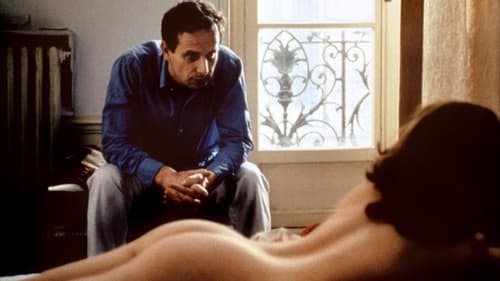
Meyers
A philosophy teacher restless with the need to do something with his life meets a young woman suspected of driving an artist to his death. He finds the very simple Cecilia irritating but develops a sexual rapport with her. Obsessed with the need to own and tormented by her inability to respond to him, he becomes increasingly violent in a quest he can't name - a quest that slowly begins to undermine his certainties.

Editor
[...] "History has made Vietnam one of my favourite places... The links that you establish with people and places very often seem totally unexpected. But it is not a question of chance. It is, among other things, a question of history, of a sequence of events, "that's how it is". Once that is admitted, you can spend a lot of time trying to understand why that is how it is." (Robert Kramer)

Director of Photography
[...] "History has made Vietnam one of my favourite places... The links that you establish with people and places very often seem totally unexpected. But it is not a question of chance. It is, among other things, a question of history, of a sequence of events, "that's how it is". Once that is admitted, you can spend a lot of time trying to understand why that is how it is." (Robert Kramer)

Director
[...] "History has made Vietnam one of my favourite places... The links that you establish with people and places very often seem totally unexpected. But it is not a question of chance. It is, among other things, a question of history, of a sequence of events, "that's how it is". Once that is admitted, you can spend a lot of time trying to understand why that is how it is." (Robert Kramer)

Writer
A house in the countryside. The trees, the cliff, the fire. A prehistoric image. Erika in the garden. Keja in the house. The river. A road tunnel. Television images: war, sports, porn movies, disasters in Africa, action movies. A man in dark glasses (Kramer) speaks of the man of the future, who can transmit the totality of his sensory experience, without the projection is no longer necessary: there will be more here, more body. "All the movements in" Ghosts of Electricity "are tai chi movements, I try to work with the hands and the lower part of the body, pivoting only on the hips, without moving my feet. it comes from a whole physical tradition, it exists in "performance art", and many other people have followed the same path. "

Director
A house in the countryside. The trees, the cliff, the fire. A prehistoric image. Erika in the garden. Keja in the house. The river. A road tunnel. Television images: war, sports, porn movies, disasters in Africa, action movies. A man in dark glasses (Kramer) speaks of the man of the future, who can transmit the totality of his sensory experience, without the projection is no longer necessary: there will be more here, more body. "All the movements in" Ghosts of Electricity "are tai chi movements, I try to work with the hands and the lower part of the body, pivoting only on the hips, without moving my feet. it comes from a whole physical tradition, it exists in "performance art", and many other people have followed the same path. "

Cinematography
I saw this happen : Raye left home. Why ? To see what was waiting for her out there. Europe ! It didn't matter where she went, the Mediterranean coast, Strasbourg, Zurich, Berlin, she's young. Then her father, Abel, left. Perhaps he wanted something else to happen to him. Things began to happen on the ship, but Odessa is where it really began. So Nellie was left there alone. Maybe she couldn't have said it, but that's what she needed. I mean, to be alone with herself. That's why she sent Raye and Abel away. So without moving, with everything around her moving very fast and also in the microscope which is her work, Nellie had her own trip to make. As for this kind of travelling, that's what each of us did. I know, I was there.

Writer
I saw this happen : Raye left home. Why ? To see what was waiting for her out there. Europe ! It didn't matter where she went, the Mediterranean coast, Strasbourg, Zurich, Berlin, she's young. Then her father, Abel, left. Perhaps he wanted something else to happen to him. Things began to happen on the ship, but Odessa is where it really began. So Nellie was left there alone. Maybe she couldn't have said it, but that's what she needed. I mean, to be alone with herself. That's why she sent Raye and Abel away. So without moving, with everything around her moving very fast and also in the microscope which is her work, Nellie had her own trip to make. As for this kind of travelling, that's what each of us did. I know, I was there.

Director
I saw this happen : Raye left home. Why ? To see what was waiting for her out there. Europe ! It didn't matter where she went, the Mediterranean coast, Strasbourg, Zurich, Berlin, she's young. Then her father, Abel, left. Perhaps he wanted something else to happen to him. Things began to happen on the ship, but Odessa is where it really began. So Nellie was left there alone. Maybe she couldn't have said it, but that's what she needed. I mean, to be alone with herself. That's why she sent Raye and Abel away. So without moving, with everything around her moving very fast and also in the microscope which is her work, Nellie had her own trip to make. As for this kind of travelling, that's what each of us did. I know, I was there.

Director
A director accepted to inquire about a mysterious coat stolen in Peru during the XVIth century. Who wove this coat? Why do those that touch it disappear? With the help of an archeologist, he retraces the itinerary of the mysterious garment: ripped off a mummy by a conquistador, brought back to Barcelona and confiscated by the clergy, taken by the French when Napoleon's troops ransacked the city, hidden on a French farm, the coat finally arrived in Berlin in 1945 in the suitcase of a fleeing SS officer...

Director
This film project was made in 1996 to commemorate the 100th anniversary of the birth of the cinema.

Writer
In this film from late in his career, Kramer returns to Hanoi after nearly 25 years to re-envision the city’s struggle through an uncertain and daunting past, present, and future. The Vietnamese characters in the film are diverse: Kramer’s former guide from an earlier visit in 1969; a tight-rope walker in the national circus; a man who took photos of B-52s and another who lost his fingers shooting them down.

Director
In this film from late in his career, Kramer returns to Hanoi after nearly 25 years to re-envision the city’s struggle through an uncertain and daunting past, present, and future. The Vietnamese characters in the film are diverse: Kramer’s former guide from an earlier visit in 1969; a tight-rope walker in the national circus; a man who took photos of B-52s and another who lost his fingers shooting them down.

Director

The French Ministry of Culture commissioned films on the cultural decade "en chantiers". Robert Kramer makes one of the six short films that illustrates the cultural side of the decade Mittérand. Here we see a director of cinema in the suburbs of Caen, in her room lined with flower paper. This for art and essay cinema. There, the critic Serge Daney in a sailor's cap, for a chat by the fire. An overview of French cinema today, "Pickpocket" on television. Then back on you. The camera slides on the desk that we imagine to be Kramer's. Finally, the camera flies over Paris, slides along the facades, stops on a window, entering the skylight: "The films invite to see ... I invite you to see Jean Genet's hotel room."

Writer
The French Ministry of Culture commissioned films on the cultural decade "en chantiers". Robert Kramer makes one of the six short films that illustrates the cultural side of the decade Mittérand. Here we see a director of cinema in the suburbs of Caen, in her room lined with flower paper. This for art and essay cinema. There, the critic Serge Daney in a sailor's cap, for a chat by the fire. An overview of French cinema today, "Pickpocket" on television. Then back on you. The camera slides on the desk that we imagine to be Kramer's. Finally, the camera flies over Paris, slides along the facades, stops on a window, entering the skylight: "The films invite to see ... I invite you to see Jean Genet's hotel room."

Director
The French Ministry of Culture commissioned films on the cultural decade "en chantiers". Robert Kramer makes one of the six short films that illustrates the cultural side of the decade Mittérand. Here we see a director of cinema in the suburbs of Caen, in her room lined with flower paper. This for art and essay cinema. There, the critic Serge Daney in a sailor's cap, for a chat by the fire. An overview of French cinema today, "Pickpocket" on television. Then back on you. The camera slides on the desk that we imagine to be Kramer's. Finally, the camera flies over Paris, slides along the facades, stops on a window, entering the skylight: "The films invite to see ... I invite you to see Jean Genet's hotel room."

Director
Contre l'Oubli (Against Oblivion) is a compilation of 30 French filmmakers, Alain Resnais and Jean Luc Godard among them, who use film to make a plea on behalf of a political prisoner. Jean Luc Godard and Anne Marie Mieville's film concerns the plight of Thomas Wanggai, West Papuan activist who has since died in prison. The short films were commissioned by Amnesty International.

Félix Beauvoir
In Brazzaville, in 1944, Alex Emmerich was sentenced to wander the seas by Hélène Latray, the wife of Félix Beauvois, the man Alex loved. In 1962, exiled on Hatray cruises and feeling the coming death, Alex decides to compose for his love a testament: the photographic report of his agony.

Director
"Hi Steve" and "Dear Robert" exchanged between two filmmakers: Robert Kramer and Stephen Dwoskin. "The Videoletters strip away the formalities that had littered our work and thinking. Through the making of the 'video letters' we started to relearn and re-look.". The Videoletters provide the benefits of reflection -- a lubricant for thought made out of very basic stuff -- the reduction of complexity -- and they cemented a brotherhood. Sadly, Robert's untimely death prevented the continuation of the "video letters" and they remain unfinished and unedited. (S.D.)

Editor
Lyrical video letter by Robert Kramer to his friend Paul McIsaac captured during the editing of “Route One/USA”.

Cinematography
Lyrical video letter by Robert Kramer to his friend Paul McIsaac captured during the editing of “Route One/USA”.

Director
Lyrical video letter by Robert Kramer to his friend Paul McIsaac captured during the editing of “Route One/USA”.

Narrator
Lyrical video letter by Robert Kramer to his friend Paul McIsaac captured during the editing of “Route One/USA”.

Director
In 1990, Robert Kramer receives a grant from the Ford Foundation. He goes to Berlin for 6 months, where he makes an hour long single video shot (for a festival) in the bathroom of his apartment. Facing the camera, the filmmaker thinks, alone, about the fall of the Berlin wall. "I've already spent 6 weeks here. With all the events in eastern Europe, it was like a hurricane. Berlin is a city where you feel the biggest changes, where you meet Polish immigrants, or others, escaping. Berlin will become a very violent city. What happens in eastern Europe is a bit like the end of the civil war in the US. The North, and all it's power stimulated by years of war, took over the South, who has lost everything. And there is this German past, the war, on all levels.
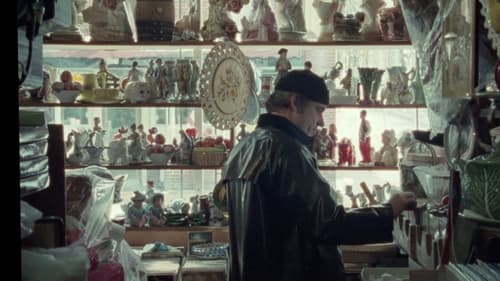
Writer
Route One is the first major U.S. highway. 5000 km along the Atlantic coast, from the Canadian border to the tip of Florida. Doc, a physician who spent many years in Africa, returns to the U.S. and decides to reconnect with his home country by walking the legendary Route One.

Director
Route One is the first major U.S. highway. 5000 km along the Atlantic coast, from the Canadian border to the tip of Florida. Doc, a physician who spent many years in Africa, returns to the U.S. and decides to reconnect with his home country by walking the legendary Route One.

Writer
父と息子の出会い、ひとつの大陸に別の大陸から来ること。ドクは医者で、リスボンの外れに住む。そこはヨーロッパと西洋が第三世界に滑り込もうとしている場所だ。彼はアフリカでの戦争のときにかかった病に苦しんでいる。現在に幻滅し、はるか昔に失った理想をアルコールに浸して生きる日々だ。ジミーは母親と共にアメリカに住んでいる。母が死に、彼は何年も前に死んだと思っていた父からの手紙を見つける。彼は父に会いに行こうと、旅立つ。ドクとジミーはついに再会するが、お互いにかけるべき言葉はそこにあるのだろうか?

Director
父と息子の出会い、ひとつの大陸に別の大陸から来ること。ドクは医者で、リスボンの外れに住む。そこはヨーロッパと西洋が第三世界に滑り込もうとしている場所だ。彼はアフリカでの戦争のときにかかった病に苦しんでいる。現在に幻滅し、はるか昔に失った理想をアルコールに浸して生きる日々だ。ジミーは母親と共にアメリカに住んでいる。母が死に、彼は何年も前に死んだと思っていた父からの手紙を見つける。彼は父に会いに行こうと、旅立つ。ドクとジミーはついに再会するが、お互いにかけるべき言葉はそこにあるのだろうか?

Adaptation
A prostitute, released from prison, tries to change her life, but a murderous slave organization, the Consortium, is determined to bring her back to the fold or kill her, which forces her to seek help from Liberty, an anti-Consortium group.

Director
A prostitute, released from prison, tries to change her life, but a murderous slave organization, the Consortium, is determined to bring her back to the fold or kill her, which forces her to seek help from Liberty, an anti-Consortium group.

An old man is kidnapped. His interrogation uncovers the biography of a mass murderer: The 80 years old man was a SS leader and responsible for the killing of thousands of people in Russia. He also "invented" an evil technique of eliminating political prisoners: the manipulated suicide. Thomas Harlan reconstructs the history of a bureaucratic murderer, he also develops a direct connection between the Nationalsocialism and the treatment of prisoners of the RAF terrorists in the Stuttgart isolation prison. Robert Kramer filmed the shooting of Harlan's Wundkanal: Notre Nazi documents a social experiment in which the children of Nazis and of victims meet a real culprit. The reality seems to be stronger that the fiction in Harlan's film. (Edition Filmmuseum)

Associate Producer
ある女性の出産の前後を追う――入院、出産、新生児を連れて帰宅し、父親と2 人の姉に迎えられ、そして新しい家族の日常生活が始まる。「大いなる1日」――1981年5月11日――は、左派が大統領選挙に勝利した日でもある。

Director of Photography
ある女性の出産の前後を追う――入院、出産、新生児を連れて帰宅し、父親と2 人の姉に迎えられ、そして新しい家族の日常生活が始まる。「大いなる1日」――1981年5月11日――は、左派が大統領選挙に勝利した日でもある。

Writer
ある女性の出産の前後を追う――入院、出産、新生児を連れて帰宅し、父親と2 人の姉に迎えられ、そして新しい家族の日常生活が始まる。「大いなる1日」――1981年5月11日――は、左派が大統領選挙に勝利した日でもある。

Director
ある女性の出産の前後を追う――入院、出産、新生児を連れて帰宅し、父親と2 人の姉に迎えられ、そして新しい家族の日常生活が始まる。「大いなる1日」――1981年5月11日――は、左派が大統領選挙に勝利した日でもある。

Director of Photography
In Our Nazi, we are plunged into a situation we barely, and only slowly, understand: the filming of Thomas Harlan’s experimental feature Wundkanal (1984), in which true-life ex-SS officer Alfred Filbert, now very old, is ‘put on trial’ for the camera, without him suspecting what is to come or why he is really there. Kramer’s confronting film is an essay about the sticky complicity of everyone present at this event, each bringing their own history, their own political ideology, their own desires to take revenge, to seek redemption or compassion, or just to put their heads down and ‘get the job done’ professionally, or (in the case of Filbert) to be a star, a part of the magnificent, magical, seductive world of cinema, even if it kills him.

Writer
In Our Nazi, we are plunged into a situation we barely, and only slowly, understand: the filming of Thomas Harlan’s experimental feature Wundkanal (1984), in which true-life ex-SS officer Alfred Filbert, now very old, is ‘put on trial’ for the camera, without him suspecting what is to come or why he is really there. Kramer’s confronting film is an essay about the sticky complicity of everyone present at this event, each bringing their own history, their own political ideology, their own desires to take revenge, to seek redemption or compassion, or just to put their heads down and ‘get the job done’ professionally, or (in the case of Filbert) to be a star, a part of the magnificent, magical, seductive world of cinema, even if it kills him.

Director
In Our Nazi, we are plunged into a situation we barely, and only slowly, understand: the filming of Thomas Harlan’s experimental feature Wundkanal (1984), in which true-life ex-SS officer Alfred Filbert, now very old, is ‘put on trial’ for the camera, without him suspecting what is to come or why he is really there. Kramer’s confronting film is an essay about the sticky complicity of everyone present at this event, each bringing their own history, their own political ideology, their own desires to take revenge, to seek redemption or compassion, or just to put their heads down and ‘get the job done’ professionally, or (in the case of Filbert) to be a star, a part of the magnificent, magical, seductive world of cinema, even if it kills him.

Director
A woman is approached by a man. Frightened, she runs away. A film on the physiological mechanisms of fear.

Writer
"Essay on the Military and the Power", a phrase that also belongs to the title of "Gestures & Fragments", sums up the spirit of the film, based on three points of view on the same theme: Otelo Saraiva de Carvalho and Eduardo Lourenço, in their own roles, and the one played by Robert Kramer, as an American journalist bent on seeking explanations for the process of the Portuguese Revolution.

American journalist
"Essay on the Military and the Power", a phrase that also belongs to the title of "Gestures & Fragments", sums up the spirit of the film, based on three points of view on the same theme: Otelo Saraiva de Carvalho and Eduardo Lourenço, in their own roles, and the one played by Robert Kramer, as an American journalist bent on seeking explanations for the process of the Portuguese Revolution.

Director
A young couple who are amateur roller-skating buffs practice their chosen avocation at a Parisian roller rink. Their hopes rise with a chance to go to Chicago to compete, especially when a magazine reporter assures them that his company will back them -- but then lets them know some sex-related business is a part of the package. Caught up in the couple's drama are several other characters who look like they might need some help themselves, making the problem of how to get to the Windy City seem more and more insoluble.
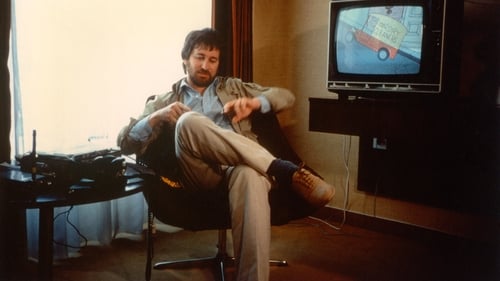
Self
During the 1982 Cannes Film Festival, Wenders asks a number of global film directors to, one at a time, go into a hotel room, turn on the camera and answer a simple question: "What is the future of cinema?"
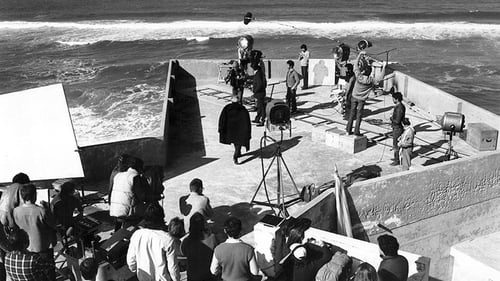
Camera Operator
On location in Portugal, a film crew runs out of film while making their own version of Roger Corman's The Day the World Ended (1956) . The producer is nowhere to be found and director Munro attempts to find him in hopes of being able to finish the film.

Writer
On location in Portugal, a film crew runs out of film while making their own version of Roger Corman's The Day the World Ended (1956) . The producer is nowhere to be found and director Munro attempts to find him in hopes of being able to finish the film.

N°122
Reel 13 of Gérard Courant's on-going Cinematon series.

Writer
The film concerns a group of disparate types who support themselves by running guns to the Arabs. On the surface, it would seem that these characters are bad guys. In fact, the guns are to be used by a resistance group who hope to continue shipping oil to the West, despite the despotic curbs imposed upon fuel shipments by their leaders.

Robin
The film concerns a group of disparate types who support themselves by running guns to the Arabs. On the surface, it would seem that these characters are bad guys. In fact, the guns are to be used by a resistance group who hope to continue shipping oil to the West, despite the despotic curbs imposed upon fuel shipments by their leaders.

Director
The film concerns a group of disparate types who support themselves by running guns to the Arabs. On the surface, it would seem that these characters are bad guys. In fact, the guns are to be used by a resistance group who hope to continue shipping oil to the West, despite the despotic curbs imposed upon fuel shipments by their leaders.
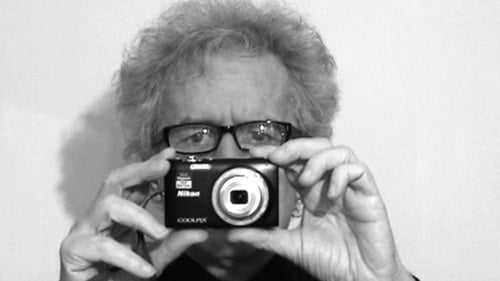
N°122
Cinématon is a 156-hour long experimental film by French director Gérard Courant. It was the longest film ever released until 2011. Composed over 36 years from 1978 until 2006, it consists of a series of over 2,821 silent vignettes (cinématons), each 3 minutes and 25 seconds long, of various celebrities, artists, journalists and friends of the director, each doing whatever they want for the allotted time. Subjects of the film include directors Barbet Schroeder, Nagisa Oshima, Volker Schlöndorff, Ken Loach, Benjamin Cuq, Youssef Chahine, Wim Wenders, Joseph Losey, Jean-Luc Godard, Samuel Fuller and Terry Gilliam, chess grandmaster Joël Lautier, and actors Roberto Benigni, Stéphane Audran, Julie Delpy and Lesley Chatterley. Gilliam is featured eating a 100-franc note, while Fuller smokes a cigar. Courant's favourite subject was a 7-month-old baby. The film was screened in its then-entirety in Avignon in November 2009 and was screened in Redondo Beach, CA on April 9, 2010.

Randolph Carter
A woman translates the front page of H.P. Lovecraft's book “The Silver Key”. Her husband, a journalist, listens. The book describes the conflicts between the real and the imaginary, and tells how Randolph Carter, the film's character, leaves everyday life in search of his childhood dreams.

Director of Photography
Combining newsreel footage, still photographs, interviews, and analytical narration, this documentary focuses on the antifascist, anti-imperialist efforts of labor groups, peasants, and working-class soldiers to liberate Portugal from the control of the government of Antonio de Oliveira Salazar.

Editor
Combining newsreel footage, still photographs, interviews, and analytical narration, this documentary focuses on the antifascist, anti-imperialist efforts of labor groups, peasants, and working-class soldiers to liberate Portugal from the control of the government of Antonio de Oliveira Salazar.

Director
Combining newsreel footage, still photographs, interviews, and analytical narration, this documentary focuses on the antifascist, anti-imperialist efforts of labor groups, peasants, and working-class soldiers to liberate Portugal from the control of the government of Antonio de Oliveira Salazar.

Editor
A portrait of those individuals who sought radical solutions to social problems in the United States during the 1960s and 1970s. Cutting back and forth between six major story lines and more than fifty characters. Exploring the lifestyles and attitudes of the American left during the period following the Vietnam War.

Director of Photography
A portrait of those individuals who sought radical solutions to social problems in the United States during the 1960s and 1970s. Cutting back and forth between six major story lines and more than fifty characters. Exploring the lifestyles and attitudes of the American left during the period following the Vietnam War.

Writer
A portrait of those individuals who sought radical solutions to social problems in the United States during the 1960s and 1970s. Cutting back and forth between six major story lines and more than fifty characters. Exploring the lifestyles and attitudes of the American left during the period following the Vietnam War.

Director
A portrait of those individuals who sought radical solutions to social problems in the United States during the 1960s and 1970s. Cutting back and forth between six major story lines and more than fifty characters. Exploring the lifestyles and attitudes of the American left during the period following the Vietnam War.

Writer
"An underground revolutionary group struggles against internal strife to stage urban guerilla attacks against a fictionalized fascist regime in the United States. Interspersed throughout the narrative are rhetorical sequences that explain the philosophy of radical action and restrain the melodrama inherent in the thriller genre." Written by Laurence Kardish, Museum of Modern Art

Robert
"An underground revolutionary group struggles against internal strife to stage urban guerilla attacks against a fictionalized fascist regime in the United States. Interspersed throughout the narrative are rhetorical sequences that explain the philosophy of radical action and restrain the melodrama inherent in the thriller genre." Written by Laurence Kardish, Museum of Modern Art

Director
"An underground revolutionary group struggles against internal strife to stage urban guerilla attacks against a fictionalized fascist regime in the United States. Interspersed throughout the narrative are rhetorical sequences that explain the philosophy of radical action and restrain the melodrama inherent in the thriller genre." Written by Laurence Kardish, Museum of Modern Art

Director
Shot in Vietnam in the summer of 1969, this documentary creates a vivid portrait of the countryside and ways of life during the war.

Producer
ニューヨークの思想・政治的運動家たち。ダンは活動家で合衆国大統領の暗殺を決意する。それは彼の個人的な決断であり、ヴェトナム戦争という巨大な犯罪に対する唯一の道徳的回答と思えるものだった。ダンの属する政治団体は、彼の決断に反対する。リーダーのひとりトラーはそんな狂った行為は危険なだけでなく無意味であり、それを防ぐためにはあらゆる手段を取ると告げる。

Screenplay
ニューヨークの思想・政治的運動家たち。ダンは活動家で合衆国大統領の暗殺を決意する。それは彼の個人的な決断であり、ヴェトナム戦争という巨大な犯罪に対する唯一の道徳的回答と思えるものだった。ダンの属する政治団体は、彼の決断に反対する。リーダーのひとりトラーはそんな狂った行為は危険なだけでなく無意味であり、それを防ぐためにはあらゆる手段を取ると告げる。

Director
ニューヨークの思想・政治的運動家たち。ダンは活動家で合衆国大統領の暗殺を決意する。それは彼の個人的な決断であり、ヴェトナム戦争という巨大な犯罪に対する唯一の道徳的回答と思えるものだった。ダンの属する政治団体は、彼の決断に反対する。リーダーのひとりトラーはそんな狂った行為は危険なだけでなく無意味であり、それを防ぐためにはあらゆる手段を取ると告げる。

Producer
During the Vietnam War, a young revolutionary, isolated with his lover in a country house, struggles to comprehend his self-inflicted inactivity and his alienation from former political associates.

Editor
During the Vietnam War, a young revolutionary, isolated with his lover in a country house, struggles to comprehend his self-inflicted inactivity and his alienation from former political associates.

Writer
During the Vietnam War, a young revolutionary, isolated with his lover in a country house, struggles to comprehend his self-inflicted inactivity and his alienation from former political associates.

Director
During the Vietnam War, a young revolutionary, isolated with his lover in a country house, struggles to comprehend his self-inflicted inactivity and his alienation from former political associates.

Machover and Fruchter's intimate documentary follows the trials and tribulations of a group of Students for a Democratic Society militants in their attempt to politicize and organize the people of Newark, New Jersey. For Amos Vogel, Troublemakers was one of the best films of the New Left because it eschewed "both clichés and propaganda" in favor of "honesty" and "careful exploration." A must watch both for activists and political documentarians. (Doc Films)

Director
This 1965 documentary portrait of a civil war is today a remarkable time capsule of Venezuelan political and social history, and valuable background to the ongoing social conflicts in that country. FALN chronicles key events of the era, from the 1958 overthrow of dictator Perez Jimenez, and the flawed attempts at social reform by Romulo Betancourt's government, to the 1962 emergence of the national liberation movement- the FALN. The FALN engaged in rural and urban guerrilla struggle throughout the Sixties, but, failing to achieve its desired coup d'etat or to gain the support of the nation's poor, the organization had largely dissipated by the end of the decade. A compilation documentary incorporating both archival footage and original scenes shot by members of the revolutionary movement, FALN draws parallels with American foreign policy in other countries, particularly Vietnam.






